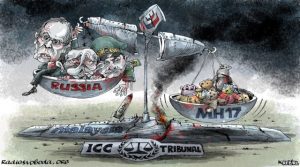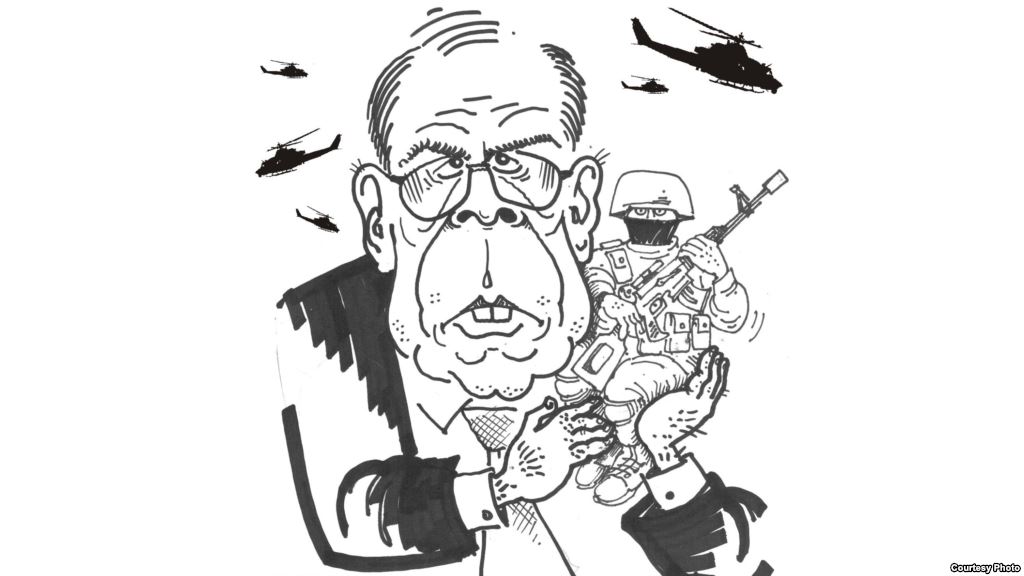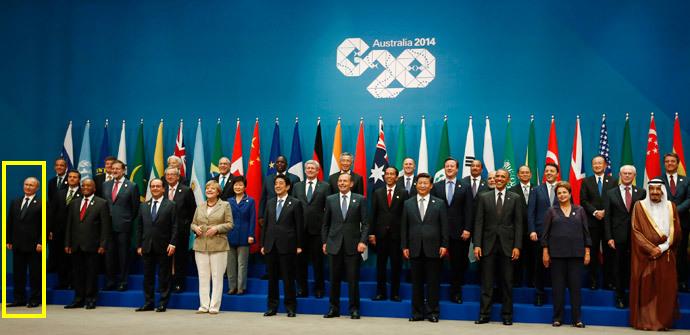The Kremlin has become a global pariah, and that is annoying Lavrov and Putin.
Moscow is slowly drowning in a quagmire of lies and propaganda. The number of fabrications and botched “sneaky plans” have become so blatantly transparent that experienced diplomats are beginning to talk about the Kremlin’s crimes in Ukraine.
In a recent interview, Russian Foreign Minister Sergey Lavrov claimed that “the Crimean referendum” had to be conducted very quickly due to a “serious military threat” from Kyiv.
“We could have taken more time to organize the referendum and invited more observers to Crimea. They’re asking us why WE did it in one week. We answer that there was a direct military threat; bandits and criminals were arriving in trains, armed to the teeth and firmly set on rooting out Russian troops. You may want to cling to some legal, technical aspects concerning the situation, but you can’t deny referendum results.”
Few people paid have paid attention to this statement, but it proves a point. The Russian “Ribbentrop” has implicitly confirmed that in spring 2014 Moscow organized some kind of “referendum” on the territory of a neighbouring country, and justified the annexation of Crimea through “referendum results”. There cannot be any other interpretations! Thank you, Mr. Lavrov, this is just another piece of evidence for the future international trial of the Kremlin clan.
Moscow backs itself into a corner
Moscow feels that it has to systematically justify its annexation of the Crimea. Russian diplomats, officials and politicians are trying to prove to themselves and to the world that Crimea is now a “legitimate Russian territory”. They understand that their ploy about “unity” was so obviously ridiculous that Moscow has backed itself into a corner. Kyiv and the West do not recognize the annexation; Russia is referred to as a thief; Putin has been asked many times to return the peninsula to Ukraine. The Kremlin has become a global pariah, and that is annoying Lavrov and Putin. They are well aware that this can have serious consequences. If you don’t believe it, just read the biography of former Iraqi President Saddam Hussein and Libyan dictator Muammar Kadaffi. Lavrov has repeatedly stated that there is no “Munich conspiracy” between Moscow and Washington over Crimea.
The immediate reason which prompted Lavrov to accept the interview was a recent European Parliament resolution on occupied Crimea. Once again, Moscow’s face was rubbed in the dirt. Brussels called on Moscow to return the peninsula, adding that sanctions against Russia would be enforced until the last Russian soldier left Ukrainian territory.
Such a document won’t make the Kremlin budge, but it’s essential for further discussion within the European Union. It’s well known that the Kremlin’s secret supporters have been working tirelessly for more than a year, trying to persuade European politicians to soften their position on sanctions and the “Russian status” of Crimea. It seemed to be working fine until the summer of 2014, but the MH-17 crash confused the whole issue.

Recent allegations of serious criminal offenses addressed against Putin and his clan have narrowed the Kremlin’s room for maneuver. Now, European fans of Russia and the Russian president have become accomplices to illegal acts. Moscow cannot count on their assistance in resolving the “Crimean issue”. The European Parliament sent a clear message to all who are “in doubt”: Crimea is Ukraine. Mr. Lavrov and Kremlin diplomats have suffered a major defeat.
Trending Now
The Kremlin is slowly but surely sinking into dementia
It’s not worth searching for strategic plans to explain Putin's strategy where everything can be explained by outright stupidity. Lavrov could have called a spade a spade. Can’t the leaders of a country with nuclear weapons control their words and deeds? Many factors indicate that the Kremlin is slowly but surely sinking into dementia.
Putin solemnly said that, due to the high dollar, the Russian budget now has “more money”. Moreover, according to his own forecast, oil could never drop below $80 a barrel. Now it’s worth about $30 a barrel, and is likely to decline even more. In response to specific questions from foreign journalists on the state of the Russian financial system, Putin began talking about “grandmother’s genitals”. No, he wasn’t being rude… he’d just lost touch with reality.
Higher Russian officials (especially the security forces) sincerely believe in different conspiracy tales: a “pro-American coup in Kyiv”, “friendship trains”, “agents of influence”, “foul English lady” and other “delicacies from the Russian State Department”. They can’t morally accept that the Ukrainian people deposed Viktor Yanukovych and his “family” without external assistance or advice.
In their opinion, civil society is incapable of initiating political action. Civil society is an inert substance. That’s also why the Kremlin actually looks down on Crimean “vatniks” and the “leaders of the republics”. Putin and Lavrov see them as absolute nonentities that were put in place and can only survive thanks to the Russian army and FSB. There was no “insurgent uprising of Crimean people”, and there never could be…By loudly emphasizing the WE, Lavrov once again confirms it.





